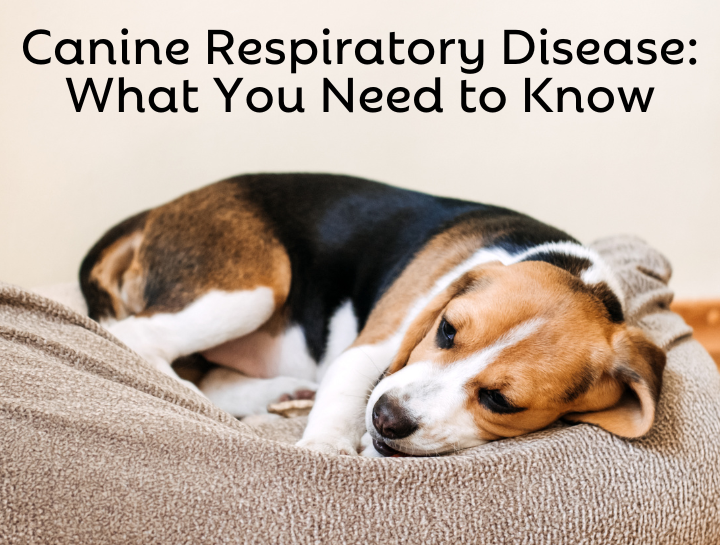Canine Respiratory Disease on the Rise: What You Need to Know

An unknown, possibly severe form of canine cough is on the rise; owners can help ensure their pet’s health by recognizing symptoms early.
The cause behind the ‘mystery’ canine infectious respiratory disease that began circulating in Oregon a few months ago remains unknown at this time. The disease has been reported in several states.
The cases appear to be caused by a virus but common respiratory diagnostic testing has not been able to conclusively show which virus or bacteria is the cause of the cough. One reason that the disease spreads so quickly is that the contagious phase of the illness may have already passed by the time cases are seen by veterinarians. Some common symptoms of the new disease include:
- Inflammation of the trachea (causing a cough) which may last six weeks or longer and is minimally or not responsive to antibiotics.
- Chronic pneumonia that is minimally or not responsive to antibiotics.
- Acute pneumonia that rapidly becomes severe and may lead to serious illness in as little as 24 to 36 hours.
Traditionally, dogs with a mild case of canine infectious respiratory disease can recover quickly after being prescribed cough suppressants or supportive care that focuses on relieving symptoms, which can include fever, coughing, nasal snuffling or discharge, discharge from the eyes, and sneezing.
Dogs with more severe symptoms require further diagnostics, treatments, and supportive care than has historically been the case for “garden variety” contagious cough. Some dogs have developed long-lasting symptoms, which can affect their health for the remainder of their lives.
While contagious respiratory diseases can have devastating effects, most dogs are very likely to recover fully, especially with the guidance of their veterinarian.
What should owners do to help keep their pets healthy?
- Owners should ensure their dogs are fully vaccinated against respiratory diseases that are preventable; these include Bordetella, parainfluenza, and Canine influenza.
- Avoid contact with other dogs from outside their household. This can occur at doggy daycare, boarding, grooming, etc.
- If the owner is around other dogs, they should wash their hands and consider changing their clothes before interacting with their own pet.
What should owners do if they believe their pet has canine infectious respiratory disease?
- Contact your veterinarian. It’s important that if owners suspect their dog might have a cough or respiratory symptoms they consult with their veterinarian, regardless of the severity of their symptoms in order to understand what steps to take.
- If your pet is receiving veterinary care for respiratory disease, please follow instructions from your veterinary health care team as they may examine your pet outside or have you use a special entrance to reduce the risk of transmitting illness to their other patients.
- Do not take your dog around other dogs. This will prevent dogs from unknowingly spreading the illness to others in case they are contagious.
- If your dog has recently been around other dogs or dog care facilities, contact them to let them know of a possible exposure.
Respiratory diseases can be troubling for dog owners and their furry friends alike. By prioritizing your dog’s respiratory health and remaining vigilant when your dog starts feeling unwell, owners can relax knowing their pet is protected while also protecting other dogs.
